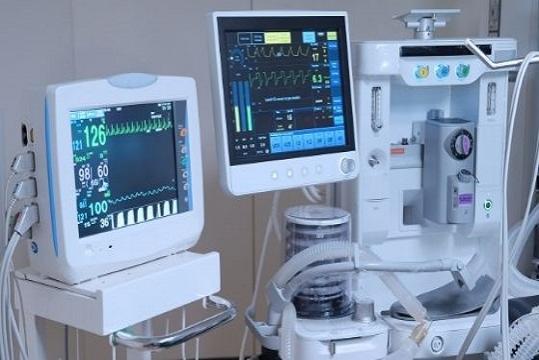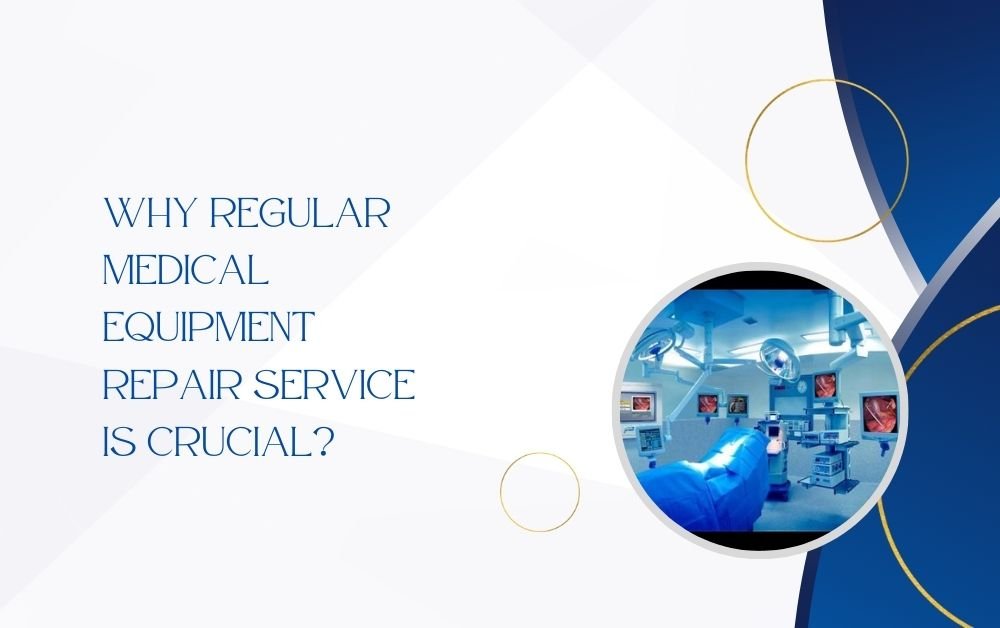Medical equipment plays a vital role in diagnosing, treating, and monitoring patients. But just like any other machinery, these devices require regular maintenance and repair to ensure they function properly. Without consistent upkeep, the equipment may break down, leading to delays in care, financial losses, and even safety risks for patients. In this blog, we will explore why regular medical equipment repair service is crucial for healthcare providers and their patients.
The Importance of Medical Equipment in Healthcare
Reliable Equipment Equals Better Patient Care
Medical equipment, from diagnostic tools like X-ray machines to life-saving devices like ventilators, is at the core of healthcare. Doctors and nurses rely on these tools to deliver accurate diagnoses, monitor patient conditions, and perform critical treatments. When the equipment is working as it should, it ensures that patients receive the best possible care.
Risks of Equipment Malfunctions
However, when medical equipment malfunctions, it can have serious consequences. Broken or faulty equipment can lead to:
- Incorrect diagnoses: Faulty diagnostic machines can give inaccurate results, leading to incorrect treatment plans.
- Treatment delays: Equipment that breaks down unexpectedly can result in treatment delays, putting patient health at risk.
- Patient safety issues: Malfunctioning devices can directly harm patients, especially during surgeries or critical care situations.
These risks highlight the need for regular repair and maintenance to keep all medical equipment running smoothly.
Benefits of Regular Medical Equipment Repair Services
1. Enhancing Patient Safety
Preventing Equipment Failures
The top priority in any healthcare setting is patient safety. Regular maintenance and repair services ensure that equipment is in good working condition and that any potential issues are detected and resolved before they lead to equipment failure. Whether it’s a malfunctioning ventilator or an inaccurate thermometer, any deviation from normal operation can jeopardize patient health.
Reducing the Risk of Human Error
Well-maintained equipment reduces the risk of human error. When healthcare professionals can trust that their tools are functioning correctly, they can focus on providing care without worrying about whether their equipment will fail during a procedure. This helps eliminate stress for medical staff and allows them to concentrate on their patients.
2. Prolonging Equipment Lifespan
Maximizing Your Investment
Medical equipment represents a significant investment for any healthcare facility. Routine repair services and preventive maintenance can help extend the life of this equipment, allowing healthcare providers to get the most out of their investment. Regular upkeep helps avoid the need for premature replacements, which can be costly.
Avoiding Unexpected Breakdowns
Regular maintenance allows for the early detection of potential issues. Small problems, like worn-out parts or minor malfunctions, can be identified and fixed before they escalate into major breakdowns. This proactive approach reduces the chances of equipment suddenly failing, saving both time and money.
3. Maintaining Compliance and Accreditation Standards
Meeting Regulatory Requirements
In healthcare, equipment must meet strict regulatory standards to ensure patient safety and the overall quality of care. Regulatory bodies like the FDA or Joint Commission have set requirements for medical equipment maintenance. Failing to meet these standards can result in penalties, loss of accreditation, or legal consequences.
Regular repair and maintenance services ensure that all equipment is compliant with these standards and that healthcare providers can pass inspections without issues.
Maintaining Accreditation
For hospitals and clinics, maintaining accreditation is essential for building trust with patients and receiving reimbursements from insurance companies. Accreditation bodies expect medical facilities to maintain high standards of equipment safety and reliability. Regular equipment repair and maintenance can help healthcare providers maintain their accreditation, which is critical for their reputation and continued operation.
4. Reducing Downtime and Improving Efficiency
Minimizing Equipment Downtime
When equipment breaks down unexpectedly, it can lead to costly downtime. Not only does this slow down patient care, but it also impacts the overall efficiency of the healthcare facility. Routine repairs help prevent unexpected equipment failures, ensuring that medical devices are available when needed.
Streamlining Healthcare Operations
By scheduling regular maintenance, healthcare providers can ensure that their equipment is always ready to perform at its best. This can improve overall workflow and reduce delays in patient care. When equipment is reliable, healthcare teams can focus more on their work and less on worrying about whether their tools will function properly.
5. Cost Savings in the Long Run
Preventive Maintenance Saves Money
While it may seem costly to invest in regular repair services, the long-term savings are substantial. Routine maintenance is much less expensive than dealing with major repairs or replacing faulty equipment. By catching and fixing minor problems early, healthcare providers can avoid more costly breakdowns in the future.
Avoiding Expensive Replacements
Regular repairs help extend the lifespan of medical equipment, preventing the need for costly replacements. Buying new medical devices is a significant financial commitment, so keeping the current equipment in good condition can help healthcare providers avoid these large expenses for as long as possible.
6. Ensuring Accurate Diagnosis and Treatment
Keeping Diagnostic Tools Accurate
Accurate diagnostics are essential for effective treatment. Medical equipment like blood pressure monitors, ECG machines, and imaging devices need to deliver precise readings to help doctors make the right decisions. Regular calibration and repair services ensure that these tools remain accurate, reducing the risk of misdiagnosis or incorrect treatments.
Providing High-Quality Patient Care
When equipment is functioning correctly, healthcare providers can offer better care to their patients. Whether it’s monitoring vital signs or administering treatments, reliable equipment helps ensure that patients receive timely and accurate care. By investing in regular repairs, healthcare providers can consistently deliver high-quality care.
How to Choose the Right Medical Equipment Repair Service

1. Look for Experience and Expertise
When selecting a repair service for your medical equipment, choose a provider with extensive experience in the healthcare industry. Specialized repair companies are familiar with the unique requirements of medical devices and can offer more reliable and efficient service.
2. Ensure Compliance with Regulations
The repair service should be knowledgeable about healthcare regulations and standards. Ensure that they follow the necessary guidelines to maintain the safety and compliance of your equipment.
3. Check for Responsive Customer Support
When equipment breaks down, you need a repair service that can respond quickly. Look for companies that offer 24/7 customer support and have a reputation for fast, efficient service.
4. Consider Warranty and Guarantees
A reputable repair service should offer warranties on their work. This ensures that if any issues arise after the repair, they will fix them at no additional cost. Warranties provide peace of mind and ensure you’re getting value for your investment.
Conclusion
Regular medical equipment repair services are essential for maintaining the safety, reliability, and efficiency of healthcare operations. From enhancing patient safety to reducing costs, investing in routine maintenance and timely repairs benefits both healthcare providers and patients. By choosing a reliable repair service and scheduling regular check-ups for your equipment, you can ensure that your medical devices function properly, helping you provide the best possible care to your patients.
In an industry where patient care is the priority, reliable medical equipment is non-negotiable. Regular repairs ensure that healthcare providers can focus on what they do best—caring for their patients—without worrying about unexpected equipment failures or malfunctions.
Note:- For read more articles visit on empireadda.



